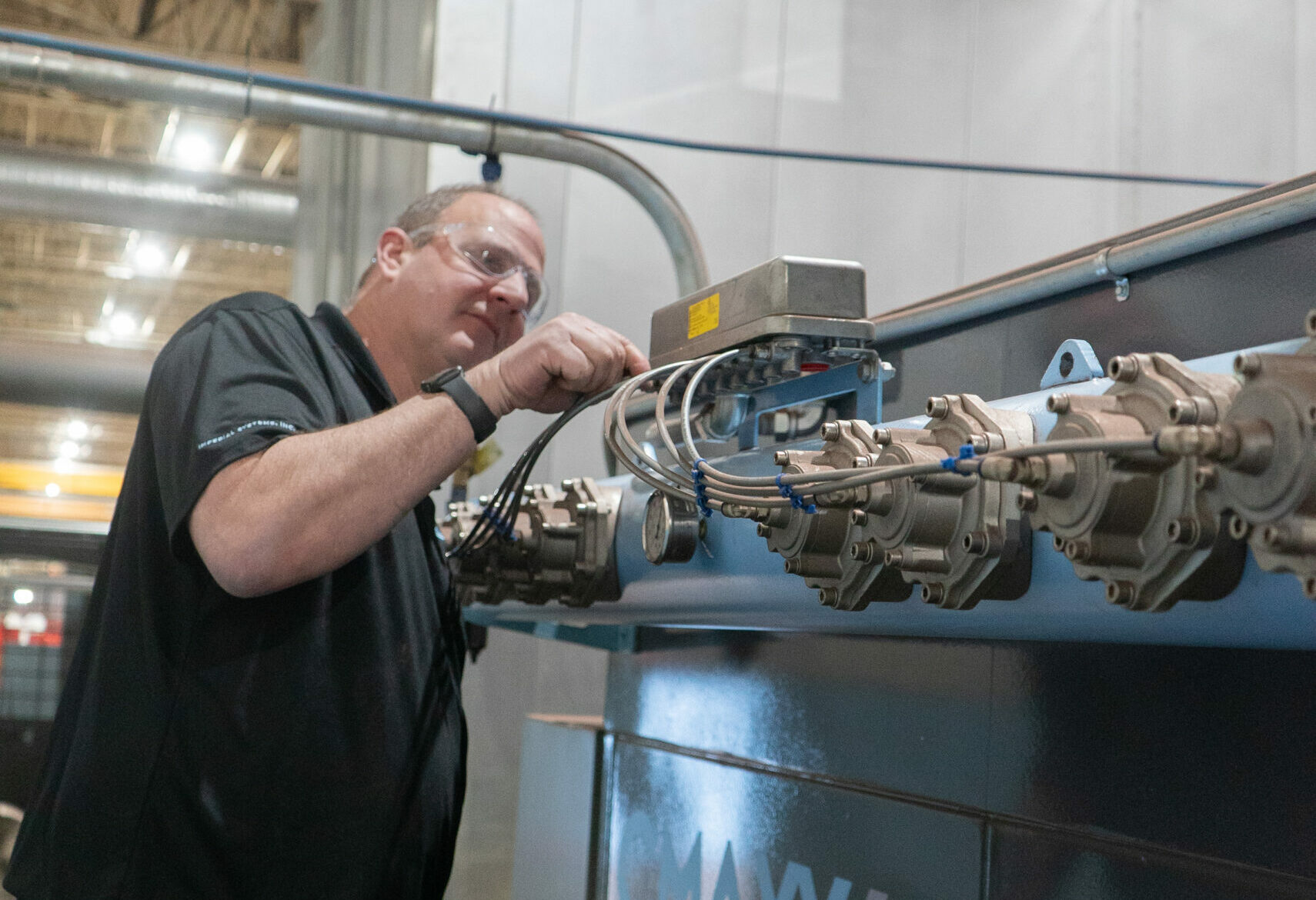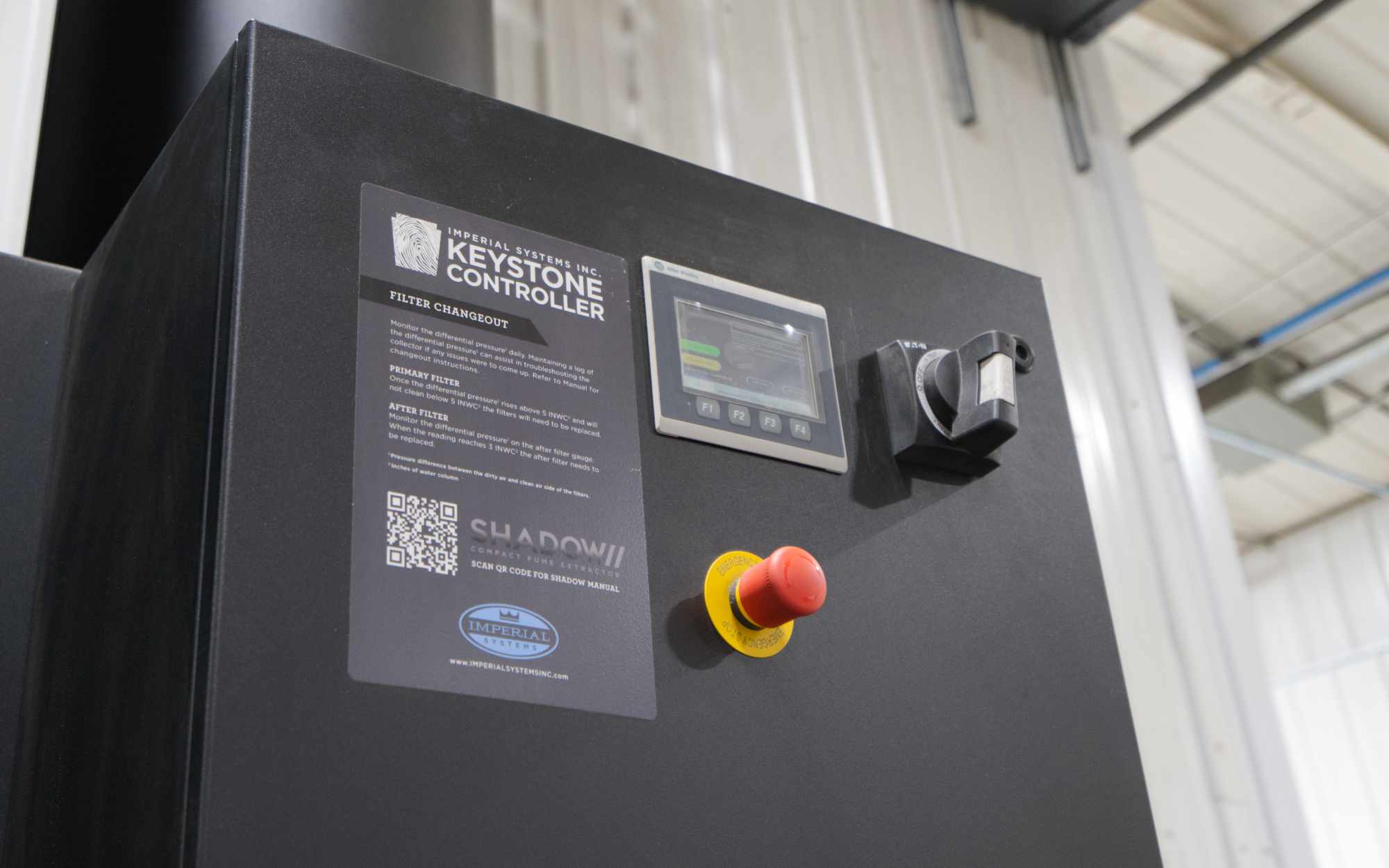The basic answer is that yes, a dust explosion is more likely during this season. The U.S. Chemical Safety Board found that since 1995, 7 out of 8 serious dust explosions occurred in the winter. February was the most dangerous month.
Why does dust explode more often in the winter? There are several factors responsible:
DRY AIR AND LOW HUMIDITY
When the air is cold and dry in the winter, dust contains less moisture. This means it can become airborne more easily. Clouds of dry airborne dust can ignite quickly. Make sure the dust collection system is in good working order and get rid of any escaped dust as soon as possible to prevent this situation.
What if you live in an area where the humidity is always low? This creates the same risks that dry winter air creates in other places. A combustible dust explosion is more likely to occur any time that the air is dry.
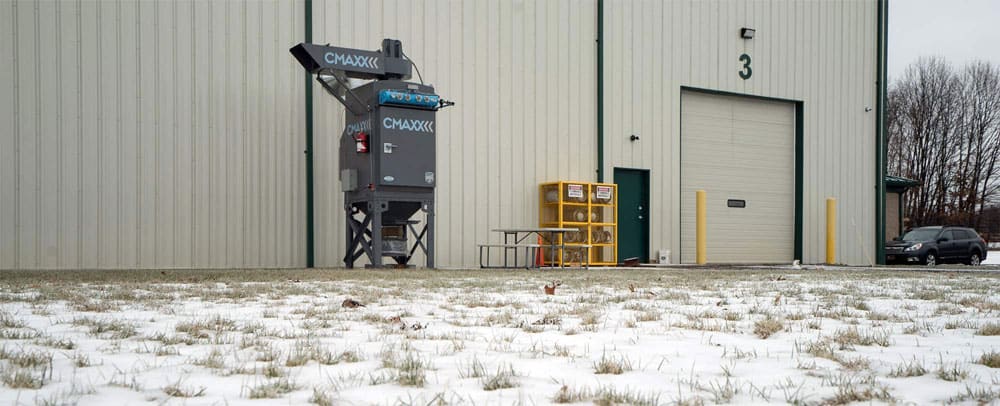
STATIC CHARGES
Dry air encourages static electricity charges to build up more easily than when the air is humid. A spark from static electricity can be enough to ignite a combustible dust explosion. Many of the dust collectors we’ve seen when doing maintenance visits are not properly grounded, or not grounded at all.
The best way to prevent the buildup of static electricity in the dust collection system (and other places) is to properly ground all dust-handling equipment. This is an important protective measure no matter what season it is.
The fact that so many systems are not grounded shows why your experienced professionals should design and install your dust collection system.
HOUSEKEEPING
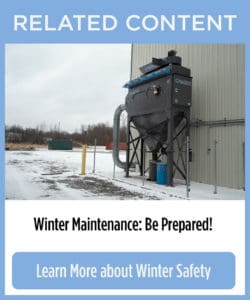 Some facilities keep doors, windows, and vents open during warm weather, which increases natural airflow. In the winter, though, it means lost heat which means lost money. Most places are sealed up as much as possible in the winter to keep the cold out, but this also keeps the dust in. Shops that count on open doors and vents to keep the air clean in the summer might be at risk of a dust explosion in the winter.
Some facilities keep doors, windows, and vents open during warm weather, which increases natural airflow. In the winter, though, it means lost heat which means lost money. Most places are sealed up as much as possible in the winter to keep the cold out, but this also keeps the dust in. Shops that count on open doors and vents to keep the air clean in the summer might be at risk of a dust explosion in the winter.
Dust buildup inside the facility in winter can also cause a dangerous situation: the potential for a secondary explosion. These happen when dust builds up somewhere, which can happen on any flat surface.
This is more likely to happen in a closed-up shop in the winter. However, it can happen any time. Secondary dust explosions happen when a first, smaller explosion happens. This might not be that bad, but the secondary dust explosion can be much worse. The first explosion blows all the accumulated dust into the air, and then it can ignite in a much bigger explosion.
IGNITION SOURCES
Heaters get turned on in the winter. There’s a good chance they haven’t been turned on since last winter. They can act as an ignition source, especially if they have any faulty wiring. Just one spark is enough for ignition. This has led to some of the worst combustible dust explosions in recent history.
In already dry winter conditions, a spark from a damaged heater is even more likely to ignite an explosion. Sparks from static can also cause ignition.
DUST CONTROL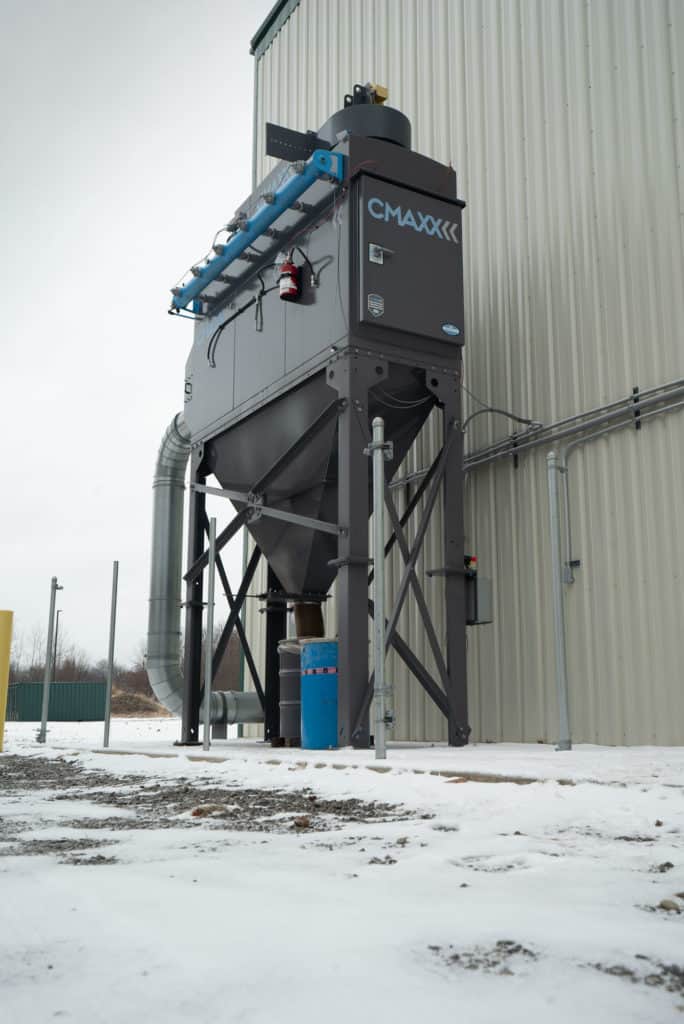
For dust to ignite, the classic “fire triangle” has to be present: fuel (combustible dust), oxygen, and an ignition source. If you remove any of those things, you can stop a dust explosion from occurring.
Because you can’t guarantee a lack of ignition sources, the best solution is to remove the fuel. A dust collection system fitted with appropriate NFPA safety devices can remove dust from your facility. With explosion isolation valves and other safety features, the dust collection system can also control a dust explosion and vent it safely.
As an added bonus, a dust collection system with high efficiency nanofiber DeltaMAXX filters can usually return air to your facility after filtering. This means that in the winter, the dust gets removed, but the heat stays inside where it belongs.
DON’T HAVE A WINTER WHERE YOU ARE?
Not everyone can be lucky enough to enjoy the ice, snow, and frigid weather of a Pennsylvania winter like we are. Maybe where you’re located, there isn’t really a cold season where the doors are closed or the heaters are on.
Do you have a dry season? During any time when the humidity is low, you have an increased risk of a combustible dust explosion.
Besides, steps, like grounding your equipment, removing ignition sources, and cleaning up your dust, are always a good idea no matter where you’re located.
